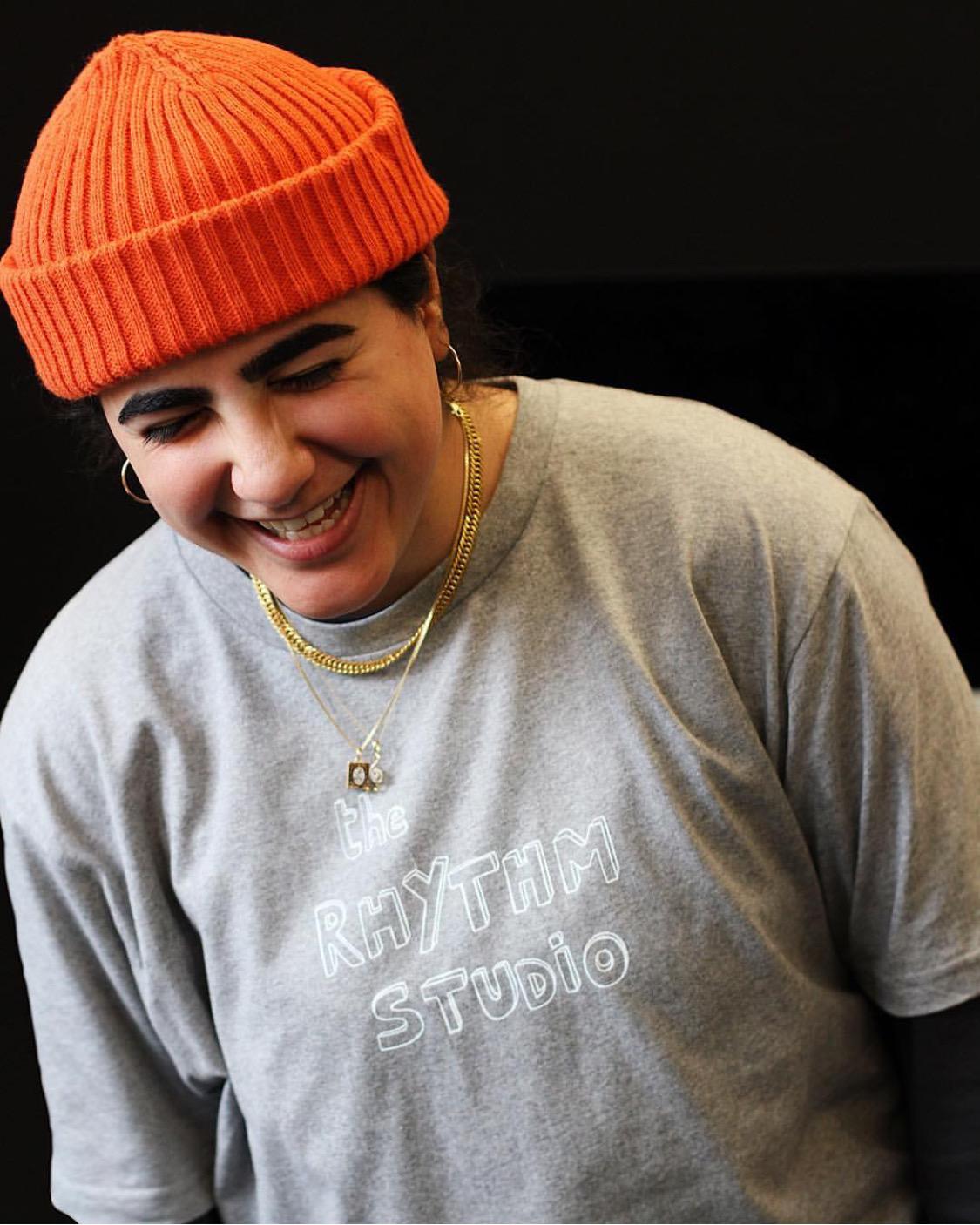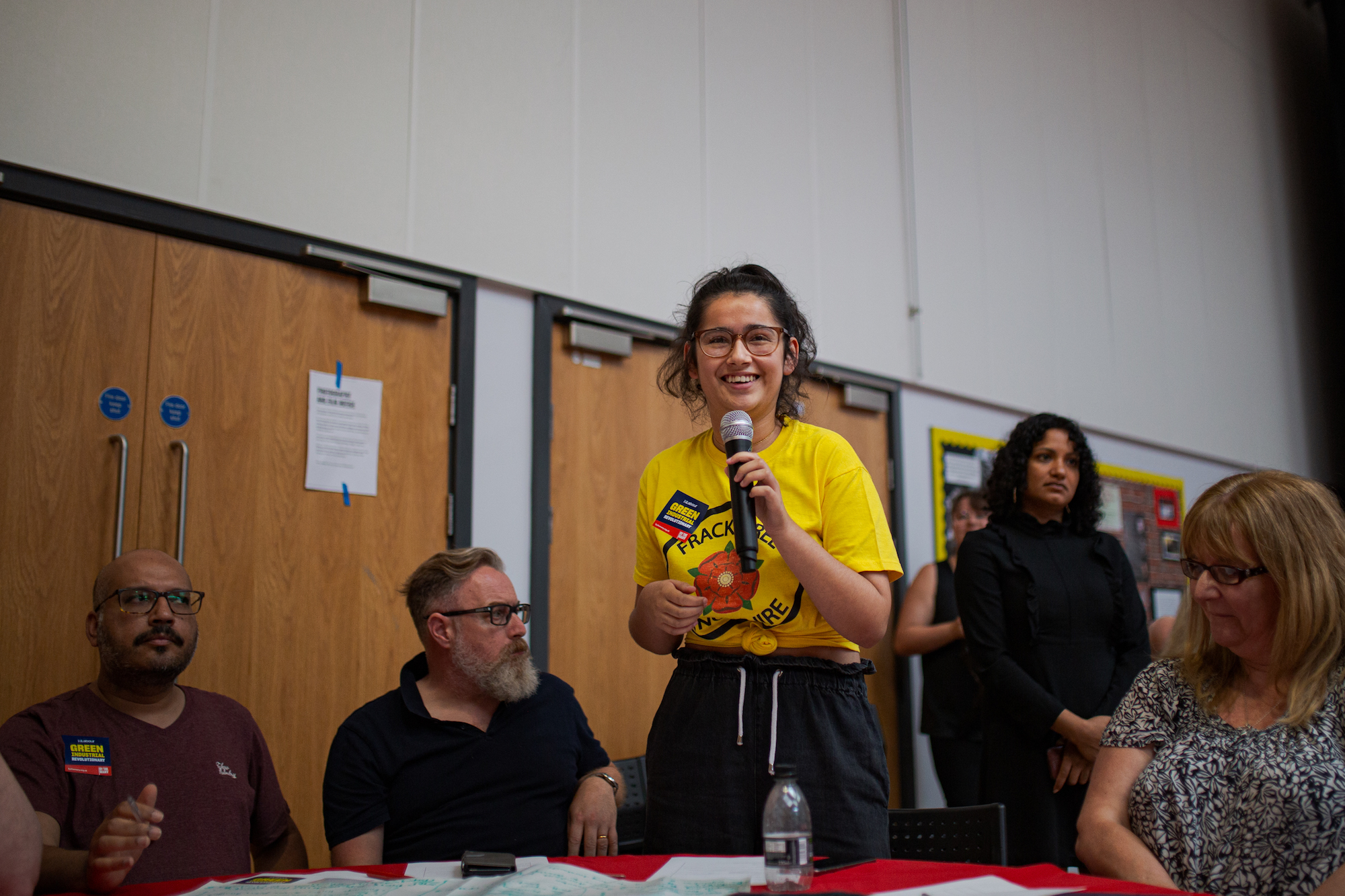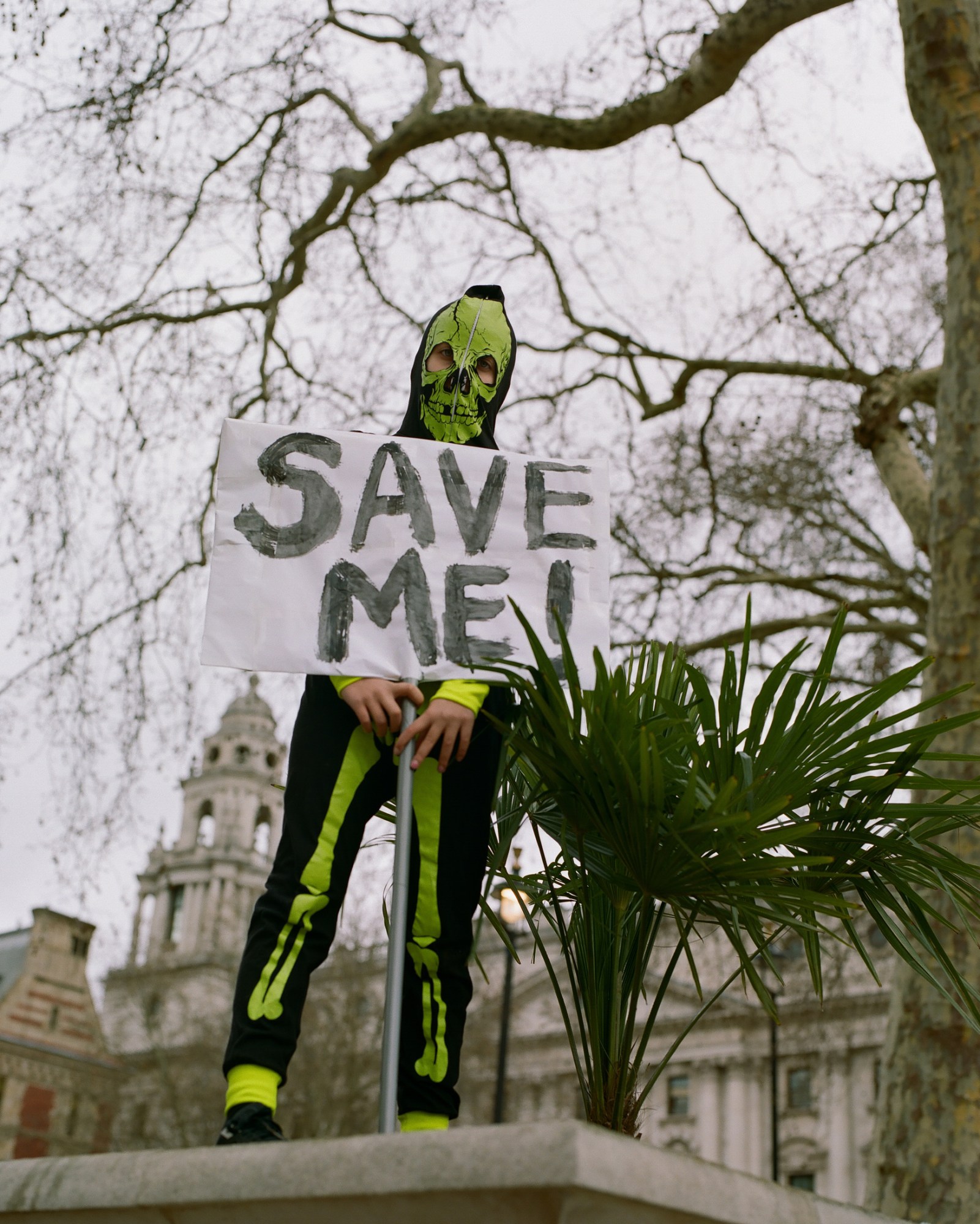Have you registered to vote? Read the rest of i-D’s 2019 election content here.
The election race is upon us, and with it comes floods in northern England and a depressing report from the world’s leading medical bodies that young people’s health is doomed if the world heats up by four degrees by 2090. There’s also been a warning from the International Energy Agency that the only way we’re going to save the planet by 2040 is if governments across the world co-operate to cut carbon emissions. Climate change is such a visible calamity of our times that it’s no wonder young people, terrified of the doom they’re going to inherit, are polling higher than any other age group in their support of the Green Party this election.
However, the Greens’ policies are being nabbed by other parties, leading to commitments such as the Conservatives’ promise to ban gas boilers in homes from 2025 and the Lib Dems’ promise to upgrade homes in fuel poverty by 2025. As for Labour, their Green New Deal is “a radical vision for transforming our economy rooted in the recognition that climate change is fundamentally a class issue, and a product of our broken economic system.”
it’s made a billboard policy of the green new industrial revolution, which promises 850,000 new jobs as part of the quest to put the UK on the path to net zero energy emissions in the 2030s. Rebecca Long-Bailey, the shadow secretary for Business, Energy and Industrial Strategy tells i-D this policy will be built from the bottom up. “Deindustrialisation was done to people. But decarbonisation will only succeed if it is done by people… as part of a popular movement to protect our economic security and the future of the planet.”
Cue Labour’s Community Organising teams. For 18 months, the party has been organising roundtables across the country to discuss local issues, especially climate change. Participants from school strikers to Labour members to people who’ve never voted Labour in their lives, and they discuss what can be done to improve their local environment. Labour’s community organisers then help them to address their local council with these issues, feeding the community’s concerns into Labour policy. The party’s manifesto, it boasts, is entirely crowdsourced. i-D caught up with three activists who’ve been involved in shaping Labour’s Green New Industrial Revolution to find out what this movement means to them.

Shamine, 21, North Kensington
“People think Kensington is an affluent area of oligarchs and villas, but there are loads of council homes full of working families. When you look at Grenfell, for example, one of the biggest issues was a need for adequate insulation and cladding. Home insulation has decreased 95% since 2012 under this Tory government in the UK. We want to make sure every household gets the insulation they need. Living in cold homes means having to crank up the heating and having to pay excess energy bills.
Another big issue we’re looking to solve is academies and schools printing so much paper. Often, schools are struggling because of a lack of funding, leading to a negative Ofsted reports. Consequently they put out flyers and letters to show that the school’s a positive force on the community.
As well as doing bottom-up organising with local communities, Labour is looking at preventive measures from the top down, because Shell and BP and fracking is not a you problem, that’s a them problem!

Tara, 19, Blackpool
People in Blackpool have long felt ignored. They can’t have policy dictated to them from London, and it would be great if policy was made from the bottom up.
I was at a meeting where we were asked by Jeremy Corbyn and the PPC Chris Webb about what a Green Industrial Revolution could do for Blackpool. At the end, each table had a chance to sum up what we’d been discussing and I was selected to speak. I told Jeremy about the issues with fracking in the local area. The voice of local activists and the council had been overturned by the government to allow for fracking [the Conservatives have now promised to ban fracking] and it’s disgusting. We weren’t given any respect and I said the only way to get that back from any political party would be if our voices were respected.
The main industry in Blackpool is tourism, so a lot of what happens with organising has to centre around the economy. We can’t afford to keep working class people behind. That’s part of the problem with the Extinction Rebellion protests, they’ve been alienating working class people in northern communities who can’t afford to sacrifice their time.
We live on the coast so it’s about helping people realise that wind farms will directly benefit our community and the profits will go back to local communities. Our conversations aren’t abstract ideas, red is the new green and Labour policy is going to benefit the working class and global south, and it’s all been shaped by grassroots movements.

Lola, 18, Romford
Austerity over the last decade has gutted public services and it’s going to be even harder to make progress as a society if our infrastructure is going to be gutted by the climate crisis. The UK may not be as affected by extreme weather changes, but people are going to die here if our public services continue to suffer. I don’t want climate to become co-opted to hurt people in the same way the financial crash was.
I’ve been a Labour member since Corbyn was elected and in January this year I went to my first School Strike for Climate Change. It was one of the most inspiring protests I’d been to and I have since got involved with planning UKSCN’s London strike and planning the New Green Deal work.
Through Labour’s community organising groups I’m going across the country trying to get people to think about what they can do directly. At these events you can see the direct links between climate change and other issues, like education, poverty and race. London’s air pollution is disproportionately affecting people from minority ethnic populations and across the world it is people of colour who are suffering from the climate crisis the most.
I feel like Labour is making sure there’s a way to engage with people who don’t always find the climate crisis is their priority. It’s about drawing those links between issues which people can identify with and ones which people might find more difficult to associate themselves with. This crisis was caused by people not having the power to make those decisions and when you give them that power and opportunity, they deliver.

